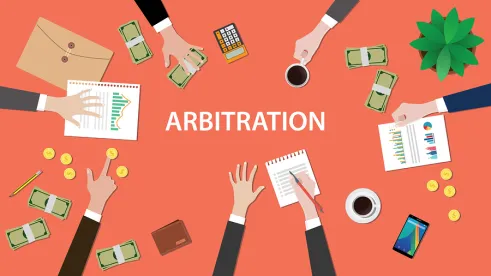California has joined a number of states in passing legislation purporting to prohibit mandatory arbitration agreements for sexual harassment and other claims. Such laws have gained popularity in the wake of the #MeToo movement, but are subject to challenge under Federal Arbitration Act (FAA) preemption principles.
(See our articles on other such state laws: Illinois Enacts Workplace Harassment Law, Creating New and Expanded Obligations for Employers; New Jersey Prohibits Enforcement of Non-Disclosure Provisions in Settlement Agreements, Other Contracts; New York Expands Harassment Laws; and Washington State Enacts New Laws Addressing Sexual Harassment in the Workplace.)
Under Assembly Bill 51, signed by Governor Gavin Newsom on October 10, 2019, California employers might be prohibited from requiring employees to sign new mandatory arbitration agreements concerning disputes arising under the California Fair Employment and Housing Act (FEHA) or California Labor Code — that is, if the FAA does not apply.
The new law, codified as California Labor Code section 432.6, prohibits employers from conditioning employment or some other employment-related benefit on an employee’s consent to waive rights, forums, or procedures for alleged violations of the FEHA or California Labor Code. It also prohibits employers from threatening, terminating, or otherwise retaliating or discriminating against employees or applicants because of their refusal to waive any rights, forums, or procedures for alleged FEHA or California Labor Code violations. It makes clear that even voluntary opt-out clauses in mandatory arbitration agreements will not be enough to escape the new law’s restrictions.
More Bark Than Bite? Prospective Application, FAA Carve-Out, Preemption
The new law is of limited application in three important ways. First, it applies only to contracts executed, modified, or extended on or after January 1, 2020. Thus, arbitration agreements already in existence appear to enjoy the benefit of a grandfather provision.
Second, and perhaps most important, the new law carves out arbitration agreements — mandatory or voluntary — that otherwise are enforceable under the FAA. It expressly provides, “[n]othing in [the law] is intended to invalidate a written arbitration agreement that is otherwise enforceable under the Federal Arbitration Act[.]” That means that if an arbitration agreement is valid under the FAA, the new law will not operate to invalidate it. The fact is that most arbitration agreements are enforceable under the FAA.
Finally, even without the express FAA carve-out language, the new law also is of limited impact because it is subject to FAA preemption. The FAA generally provides that written agreements to arbitrate must be enforced in accordance with their terms, subject to limited exceptions. The U.S. Supreme Court repeatedly has held that state laws purporting to obstruct enforcement of arbitration agreements — even those that are “mandatory” conditions of employment — are preempted by the FAA. See AT&T Mobility LLC v. Concepcion, 563 U.S. 333, 341 (2011) (“When state law prohibits outright the arbitration of a particular type of claim, the analysis is straightforward: The conflicting rule is displaced by the FAA.”). In fact, earlier this year, the U.S. District Court for the Southern District of New York struck down New York’s similar ban on mandatory arbitration agreements (which also included the federal law carve-out) on FAA preemption grounds. Latif v. Morgan Stanley & Co. LLC, et al., No. 1:18-cv-11528 (S.D.N.Y. June 26, 2019). (See our article, Federal Arbitration Act Preempts New York’s Bar on Agreements to Arbitrate Sexual Harassment Claims, Court Rules.)
Once challenged, the California law may face a similar fate. Indeed, recognizing the obstacle of FAA preemption, former Governor Jerry Brown twice vetoed previous versions of the law, Assembly Bill 465 in 2015 and Assembly Bill 3080 in 2018, both of which also attempted to ban mandatory arbitration agreements for certain claims. Those bills did not include the new law’s carve-out for agreements enforceable under the FAA.





 />i
/>i
